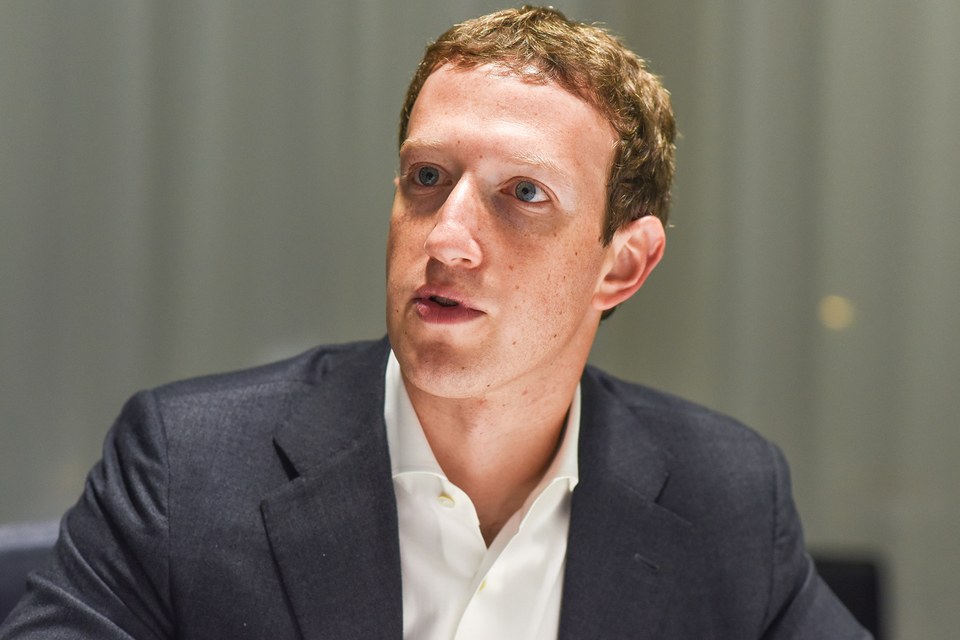
Date: 2024-04-29 Page is: DBtxt003.php txt00014897
The Facebook Saga
User agreement
ZUCKERBERG HITS USERS WITH THE HARD TRUTH: YOU AGREED TO THIS ... After another privacy bombshell, Facebook tells horrified users, “it’s explained right there in the app.”
Burgess COMMENTARY
I am more than a little curious how Zuckerberg and Facebook are going to finesse the mess they seem to be in as more and more revelations about their trade in personnal information becomes visible. The idea of personal privacy seems to be long gone, and one has to worry whether some of the legal constructs that are buried in the small print of 'agreements' will trump common sense for a civilized society. My impresion of Facebook has been that it has never progressed much from its Harvard dorm origins ... and is essentially a somewhat puerile endeavour!
Peter Burgess
ZUCKERBERG HITS USERS WITH THE HARD TRUTH: YOU AGREED TO THIS
After another privacy bombshell, Facebook tells horrified users, “it’s explained right there in the app.”

19938086
By Daniel Biskup/laif/Redux.
After embarking on exactly the kind of cringe-inducing apology tour one would expect following the revelation that Cambridge Analytica plundered the data of millions of Facebook users, Mark Zuckerberg has yet another mess on his hands. Over the weekend, Android owners were displeased to discover that Facebook had been scraping their text-message and phone-call metadata, in some cases for years, an operation hidden in the fine print of a user agreement clause until Ars Technica reported. Facebook was quick to defend the practice as entirely aboveboard—small comfort to those who are beginning to realize that, because Facebook is a free service, they and their data are by necessity the products.
In its current iteration, Facebook’s Messenger application requests that those who download it give it permission to access incoming and outgoing call and text logs. But, as users discovered when prompted to download a copy of their personal data before permanently deleting their Facebook accounts, a certain amount of data was covertly siphoned without explicit permissions. Buried inside those data caches was an unsettling amount of specific, detailed information—in some cases, every phone call or text message ever sent or received on their Android device. Dylan McKay, who apparently owns an Android phone, reported that for the period between November 2016 and July 2017, his archives contained “the metadata of every cellular call I’ve ever made, including time and duration” and “metadata about every text message I’ve ever received or sent.” When people like McKay agreed to share their contacts with Facebook, it appears they didn’t know the extent to which they were giving Facebook access to their personal information.
21 Mar
Dylan McKay
@dylanmckaynz
Downloaded my facebook data as a ZIP file
Somehow it has my entire call history with my partner's mum pic.twitter.com/CIRUguf4vD
Dylan McKay
@dylanmckaynz
a historical record of every single contact on my phone, including ones I no longer have pic.twitter.com/XfiRX6qgHl
4:05 AM - Mar 21, 2018
View image on Twitter
4,544
2,624 people are talking about this
Twitter Ads info and privacy
Facebook responded with a blog post laying out the applicable user-agreement terms and denying that Facebook collects call or SMS data surreptitiously. “Contact uploading is optional. People are expressly asked if they want to give permission to upload their contacts from their phone—it’s explained right there in the apps when you get started,” the company said in a statement to the Guardian. “People can delete previously uploaded information at any time and can find all the information available to them in their account and activity log from our Download Your Information tool.”
Watch Now: Celebrity Nano-Impressions with Jay Pharoah
But the revelation couldn’t have come at a worse time for Facebook, which is trying—and failing—to dig itself out from under the Cambridge Analytica fiasco. On Sunday, the company released a full-page print advertisement in the U.K.’s The Observer, The Sunday Times, Mail on Sunday, Sunday Mirror, Sunday Express, and the Sunday Telegraph, along with American newspapers The New York Times, The Washington Post, and The Wall Street Journal, in an attempt to regain public trust. In the ad, Zuckerberg called the Cambridge Analytica leak a “breach of trust” and apologized, reassuring readers that “we’re now taking steps to ensure this doesn’t happen again,” but so far it seems to have missed the mark. According to a poll from SurveyMonkey and Axios published on Monday, Facebook’s already-low favorability rating has dropped twice as much as that of other tech giants from October 2017 to March 2018.
MARK ZUCKERBERG
FOLLOW
Follow to get the latest news and analysis about the players in your inbox.
SEE ALL PLAYERS
MAYA KOSOFF
Maya Kosoff writes about tech for VF.com